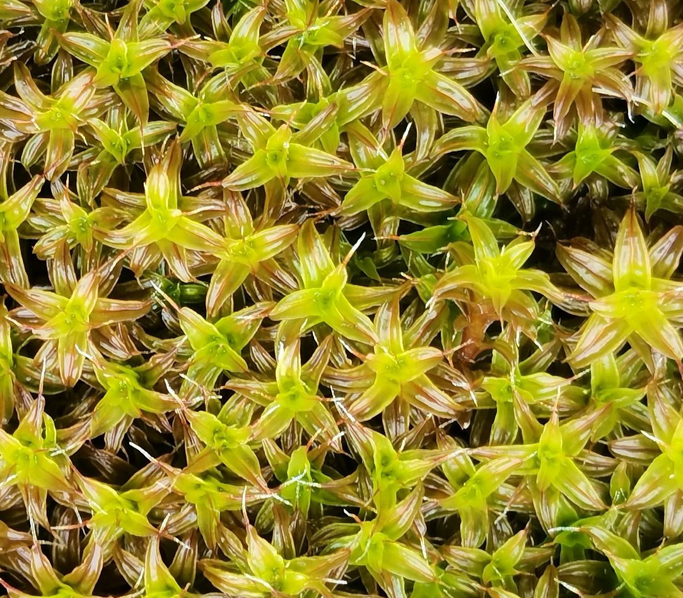

Heterologous Overexpression of Desiccation-tolerance Moss ScABI3 Gene Changes Stomatal Phenotype and Improves Drought Resistance in Transgenic Arabidopsis
Received date: 2020-12-26
Accepted date: 2021-05-08
Online published: 2021-05-08
ABI3 is a key transcriptional factor of the ABA signaling pathway, which is involved in seed dormancy, plastid development, and desiccation tolerance of bryophytes, and plays an important role in the stress tolerance of plant. This study obtained three independent pCAMBIA1301-ScABI3 transgenic Arabidopsis homozygous lines. The results showed that transgenic plants increased leaf stomata diameter, reduced the number of stomata in unit area, and improved plant water use efficiency; transgenic plants survival rate was significantly higher than wild type (WT) after 14 days of drought treatment; the water loss rate of transgenic leaves was significantly lower than that of WT. Further research has found that ScABI3 transgenic plants had higher drought resistance characteristics by improving reactive oxygen species (ROS) scavenging ability. These results may be contributed to the development and utilization of genetic resources of desert plants, also provide the theoretical and practical base for molecular breeding.

Key words: abscisic acid; ABI3; drought resistance; stomata
Yigong Zhang , Yi Zhang , Ayibaiheremu Mutailifu , Daoyuan Zhang . Heterologous Overexpression of Desiccation-tolerance Moss ScABI3 Gene Changes Stomatal Phenotype and Improves Drought Resistance in Transgenic Arabidopsis[J]. Chinese Bulletin of Botany, 2021 , 56(4) : 414 -421 . DOI: 10.11983/CBB20212
| [1] | 王宏亮, 郭思义, 王棚涛, 宋纯鹏 (2018). 植物气孔发育机制研究进展. 植物学报 53, 164-174. |
| [2] | 王雅静, 张欣莹, 黄桂荣, 刘晓英, 郭瑞, 顾峰雪, 钟秀丽, 梅旭荣 (2019). 植物磷脂酸的特性及其在ABA诱导气孔运动中的作用. 植物学报 54, 245-254. |
| [3] | Bedi S, Sengupta S, Ray A, Nag Chaudhuri R (2016). ABI3 mediates dehydration stress recovery response in Arabidopsis thaliana by regulating expression of downstream genes. Plant Sci 250, 125-140. |
| [4] | Brady SM, Sarkar SF, Bonetta D, McCourt P (2003). The ABSCISIC ACID INSENSITIVE 3 (ABI3) gene is modulated by farnesylation and is involved in auxin signaling and lateral root development in Arabidopsis. Plant J 34, 67-75. |
| [5] | Chen K, Li GJ, Bressan RA, Song CP, Zhu JK, Zhao Y (2020). Abscisic acid dynamics, signaling, and functions in plants. J Integr Plant Biol 62, 25-54. |
| [6] | Duff RJ, Oliver MJ, Wood AJ (1999). A Tortula ruralis cDNA encoding small-subunit ribosomal protein S3a: polysomal retention of transcript in response to desiccation and rehydration. Bryologist 102, 418-425. |
| [7] | Khandelwal A, Cho SH, Marella H, Sakata Y, Perroud PF, Pan A, Quatrano RS (2010). Role of ABA and ABI3 in desiccation tolerance. Science 327, 546. |
| [8] | Marella HH, Sakata Y, Quatrano RS (2006). Characterization and functional analysis of ABSCISIC ACID INSENSITIVE3-like genes from Physcomitrella patens. Plant J 46, 1032-1044. |
| [9] | Mittal A, Gampala SSL, Ritchie GL, Payton P, Burke JJ, Rock CD (2014). Related to ABA-insensitive3 (ABI3)/Viviparous1 and AtABI5 transcription factor coexpression in cotton enhances drought stress adaptation. Plant Biotechnol J 12, 578-589. |
| [10] | Mönke G, Seifert M, Keilwagen J, Mohr M, Grosse I, Hähnel U, Junker A, Weisshaar B, Conrad U, Bäumlein H, Altschmied L (2012). Toward the identification and regulation of the Arabidopsis thaliana ABI3 regulon. Nucleic Acids Res 40, 8240-8254. |
| [11] | Oliver MJ, Dowd SE, Zaragoza J, Mauget SA, Payton PR (2004). The rehydration transcriptome of the desiccation-tolerant bryophyte Tortula ruralis: transcript classification and analysis. BMC Genomics 5, 89. |
| [12] | Pan Z, Pitt WG, Zhang YM, Wu N, Tao Y, Truscott TT (2016). The upside-down water collection system of Syntrichia caninervis. Nat Plants 2, 16076. |
| [13] | Rohde A, Prinsen E, De Rycke R, Engler G, Van Montagu M, Boerjan W (2002). PtABI3 impinges on the growth and differentiation of embryonic leaves during bud set in poplar. Plant Cell 14, 1885-1901. |
| [14] | Shinde S, Nurul Islam M, Ng CKY (2012). Dehydration stress-induced oscillations in LEA protein transcripts involves abscisic acid in the moss, Physcomitrella patens. New Phytol 195, 321-328. |
| [15] | Tamminen I, Mäkelä P, Heino P, Palva ET (2001). Ectopic expression of ABI3 gene enhances freezing tolerance in response to abscisic acid and low temperature in Arabidopsis thaliana. Plant J 25, 1-8. |
| [16] | Tanaka Y, Nose T, Jikumaru Y, Kamiya Y (2013). ABA inhibits entry into stomatal-lineage development in Arabidopsis leaves. Plant J 74, 448-457. |
| [17] | Wood AJ, Oliver MJ (2004). Molecular biology and genomics of the desiccation tolerant moss Tortula ruralis. In: Wood AJ, Oliver MJ, Cove DJ, eds. New Frontiers in Bryology. Dordrecht: Springer. pp. 71-89. |
| [18] | Wu N, Zhang YM, Downing A, Zhang J, Yang CH (2012). Membrane stability of the desert moss Syntrichia caninervis Mitt. during desiccation and rehydration. J Bryol 34, 1-8. |
| [19] | Xia J, Wang XQ, Perroud PF, He YK, Quatrano R, Zhang WX (2016). Endogenous small-noncoding RNAs and potential functions in desiccation tolerance in Physcomitrella patens. Sci Rep 6, 30118. |
| [20] | Xiao LH, Yobi A, Koster KL, He YK, Oliver MJ (2018). Desiccation tolerance in Physcomitrella patens: rate of dehydration and the involvement of endogenous abscisic acid (ABA). Plant Cell Environ 41, 275-284. |
| [21] | Yotsui I, Serada S, Naka T, Saruhashi M, Taji T, Hayashi T, Quatrano RS, Sakata Y (2016). Large-scale proteome analysis of abscisic acid and ABSCISIC ACID INSENSITIVE3-dependent proteins related to desiccation tolerance in Physcomitrella patens. Biochem Biophys Res Commun 471, 589-595. |
| [22] | Yu H, Chen X, Hong YY, Wang Y, Xu P, Ke SD, Liu HY, Zhu JK, Oliver DJ, Xiang CB (2008). Activated expression of an Arabidopsis HD-START protein confers drought tolerance with improved root system and reduced stomatal density. Plant Cell 20, 1134-1151. |
| [23] | Zhang J, Zhang YM, Downing A, Wu N, Zhang BC (2011). Photosynthetic and cytological recovery on remoistening Syntrichia caninervis Mitt., a desiccation-tolerant moss from Northwestern China. Photosynthetica 49, 13-20. |
/
| 〈 |
|
〉 |